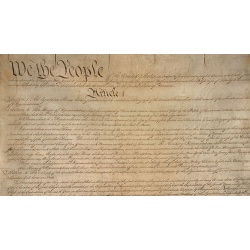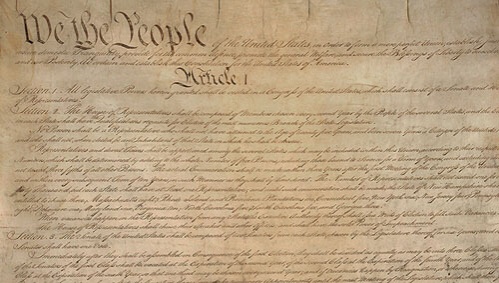
This year's Presidential campaign has had plenty of constitutional issues
"There are always constitutional issues that arise during a presidential campaign," says Luther College political science professor Michael Engelhardt. He says "probably" more such issues have been raised during this presidential campaign, but each campaign has such issues.
For instance, there have been a number of presidential candidates in recent years who have faced questions about whether they were a "natural born citizen" and thus qualified to serve as president under the guidelines of the Constitution.
George Romney was born of two American citizens living in Mexico at the time of George's birth. John McCain was born on a naval base in Panama--but of two American citizens. Ted Cruz was born in Canada--but his mother was an American citizen. And Barack Obama was challenge on the claim that he had really been born in Kenya.
Engelhardt says Utah Senator Orrin Hatch has proposed a constitutional amendment that would say simply that someone needs to be an American citizen for at least 20 years in order to serve as president--a much simpler standard.
Another issue that has surfaced in this year's presidential campaign is whether the proposal by Republican Donald Trump to ban Muslims from coming into the country is constitutional. Engelhardt says Article VI of the Constitution says there are no religious qualifications (or exclusions) for public office. But that language applies only to politicians. He says there is a practical question about screening refugees for their religious beliefs--would those refugees admit their beliefs?
Engelhardt says many constitutional questions get raised, but are difficult to resolve because the courts must first determine whether someone who brings a lawsuit about the question has "standing"--that is, they are personally harmed by the constitutional requirement. He says it's difficult to prove, for instance, that anyone is harmed by having a president who was born out of the country and might not have "birthright citizenship" to qualify for the office.
Site designed and maintained by Iroc Web Design Services©.
Your Small Business Web Design Solutions.™


